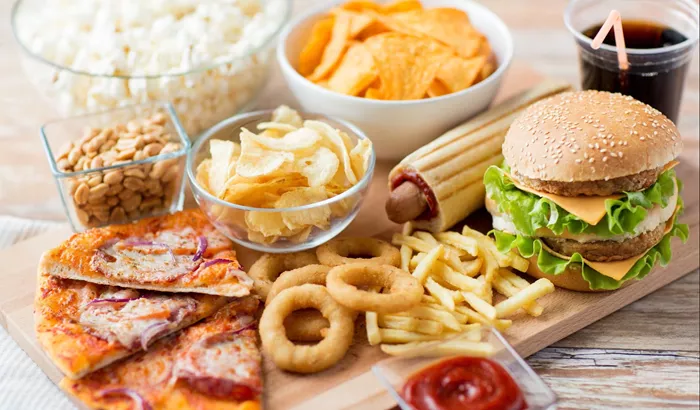Many Americans feel overwhelmed by stress — and when that happens, grabbing snacks like chips or ice cream can feel like the easiest way to cope. But according to mental health experts, stress eating may not actually lead to eating more than usual.
Dr. Kristin Javaras, a psychologist at McLean Hospital and a professor at Harvard Medical School, says our beliefs about stress eating are often based on myths, not facts. “People often think they eat more when they’re stressed,” she explained, “but that might not be true.”
What Is Stress Eating?
Stress eating means eating in response to emotions, not hunger. But the idea that people always overeat during stress is misleading. According to Javaras, many people remember emotional moments — like a breakup — and eating something like ice cream afterward. But they often forget the times they were stressed and ate less, like during a busy workday.
In fact, some studies show stress can affect people differently:
- About 40% of people eat more during stress,
- 40% eat less,
- 20% don’t change their eating habits at all.
How Chronic Stress Changes the Body
Dr. Christopher McGowan, an obesity specialist from North Carolina, says that long-term stress is more likely to cause overeating than short-term stress. That’s because the body releases a hormone called cortisol during ongoing stress. Cortisol can:
- Increase your appetite,
- Disrupt your sleep,
- Lead to weight gain — especially around the belly.
This may also lead to cravings for “comfort foods” that are high in fat and sugar. These foods trigger dopamine, a chemical that makes us feel good temporarily. But that feeling usually doesn’t last long and can often leave us feeling guilty afterward.
Comfort Food May Not Be Comforting
Despite the name, comfort food may not actually reduce stress. A study found that people who swapped unhealthy snacks for fruits and vegetables felt no worse than those who stuck with traditional comfort foods.
How to Recognize and Control Cravings
Rachel Gargano, a registered dietitian, says one key to managing stress eating is learning how to tell the difference between physical hunger and emotional hunger. Here’s how:
If it’s been 3–4 hours since your last meal, you might be physically hungry.
If you recently ate and still feel hungry, it might be emotional.
Cravings usually last 20 to 30 minutes. If you can distract yourself during that time, the feeling will likely pass.
Tips to Avoid Overeating When Stressed
Experts recommend building an “anti-craving tool kit” to help manage emotional eating. Here are some easy strategies:
🥗 Stick to regular meals
Skipping meals can make you more likely to binge later.
🧃 Stay hydrated
Drink enough water throughout the day. A good rule: drink half your weight in ounces daily (e.g., if you weigh 160 pounds, aim for 80 ounces).
🥚 Eat enough protein and fiber
Protein keeps you full longer, and fiber helps control blood sugar and digestion. Women need 25 grams of fiber per day; men need 35 grams.
😴 Sleep at least 7–8 hours
Lack of sleep can increase cravings and reduce your ability to make healthy food choices.
Try Healthy Distractions
Instead of heading to the kitchen, try one of these healthy distractions:
- Take a short walk,
- Read a book,
- Sit outside,
- Do 15 minutes of yoga.
Exercise in particular helps lower stress hormones and boosts mood. Even just a few minutes can help retrain your brain and improve overall well-being.
When to Worry (And When Not To)
Dr. Joanna Steinglass, a researcher on eating disorders, says stress can lead to more serious eating problems in some people. But not always.
If you find yourself stress eating once in a while, don’t panic. “I always tell people not to stress themselves out more,” said Javaras. “One day of eating a little more when you’re stressed isn’t something to feel bad about.”
Stress affects everyone differently. Learning how your body and emotions respond to stress — and using simple strategies to manage them — can help you avoid turning to food as your main source of comfort.
Read more:
- Understanding & Treating Stress Hives: A Comprehensive Guide
- New Insights Into Stress Hormones Could Improve Treatments For Mental Illness
- Extreme Work Stress Raises Women’s Risk Of Heart Disease, Experts Warn


